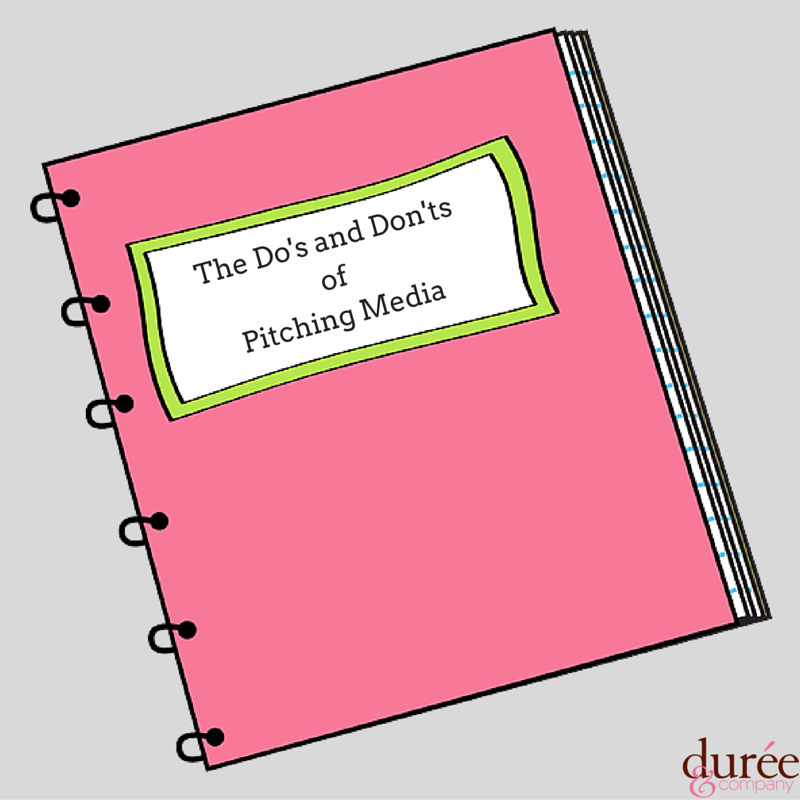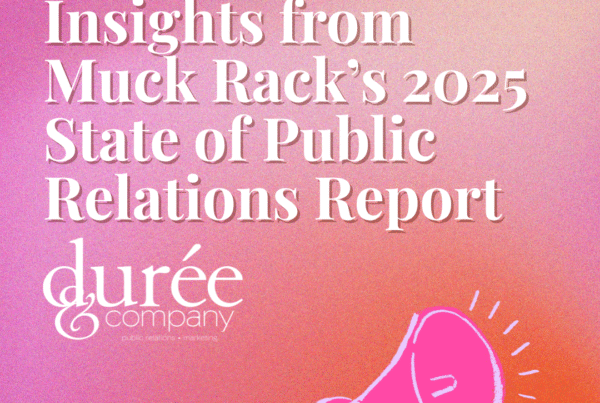 At award-winning South Florida PR firm Durée & Company, it’s never a quiet day at the office. There’s always articles to be clipped, clients to meet, and pitching to be done. In fact, pitching media is a daily occurrence here at the D&Co office!
At award-winning South Florida PR firm Durée & Company, it’s never a quiet day at the office. There’s always articles to be clipped, clients to meet, and pitching to be done. In fact, pitching media is a daily occurrence here at the D&Co office!
A media pitch is an email, phone call or in-person conversation with a journalist with the intention of captivating their attention on a potential topic or news angle. In other words, we bring news and stories from our clients and approach media with the goal of receiving press for our clients. The more personalized that the pitch letter is to the journalist, the better! But why do some pitches get rejected? Why don’t journalists always pick up every pitch they receive? We thought we would go straight to the sources themselves and ask a few of our journalist friends to share their insight.
According to Fred Gonzalez, an editor at Miami.com, when asked why PR pitches get rejected his response was, “Very few publicists attempt to connect with the reporter. But that’s what builds trust in a relationship. When it comes time for me to do a story, I am going to call the person I trust and have a relationship with.” He also stated that “the email starting with someone else’s name or taking too long to get to the point” often results in an immediate rejection.
Robyn A. Friedman, a freelance business journalist and copywriter, agrees wholeheartedly with Gonzalez’s point on a pitch being addressed with someone else’s name. Friedman remarks that “I will immediately delete anything that spells my name wrong. A carefully tailored “custom” email will get my attention, whereas general blasts don’t.” She also believes in the importance of “creating relationships with journalists. Those relationships will get your emails read and phone call answered.”
Cindy Kent, a reporter assistant with the Sun-Sentinel, expresses how credibility can be eroded in a matter of seconds just by not including simple details. Cindy will reject pitches if they “promote an event, but omit important details like when and where, and aren’t paying attention to the beat I cover.” It’s imperative that the pitch sent is relevant to that news outlet. Cindy explains that another main reason PR pitches get rejected is because “the regional news is out of her readership area or the pitch is off-topic for either the paper at large or the journalist being contacted.” Dave Aizer, another friend and host of “Inside South Florida” on WSFL-TV, concurs with Kent and says, “The pitch needs to be the right fit, and captivate me in a few sentences.”
The take-away? We were able to summarize this important advice into 3 easy points to remember:
- Spell the journalist’s name (and news outlet!) correctly.
- Connect with the reporter and customize the pitch for them.
- Make sure the pitch is relevant to the reporter’s readership and is appropriate for the news outlet.
After all, no one likes to be rejected! Happy pitching, everyone!
About Durée & Company
Durée & Company, Inc. is an award-winning full-service public relations, marketing and special events firm with offices in Fort Lauderdale, Florida and Aspen, Colorado. The firm serves the corporate, agency and non-profit arenas for local, national and international clients focusing on public relations for real estate, public relations for restaurants, public relations for law firms, public relations for charities, public relations for healthcare, and many more. Durée & Company services include Public Relations, Social Media, Marketing, Advertising, Special Events, and Radio Promotions and Outreach.








